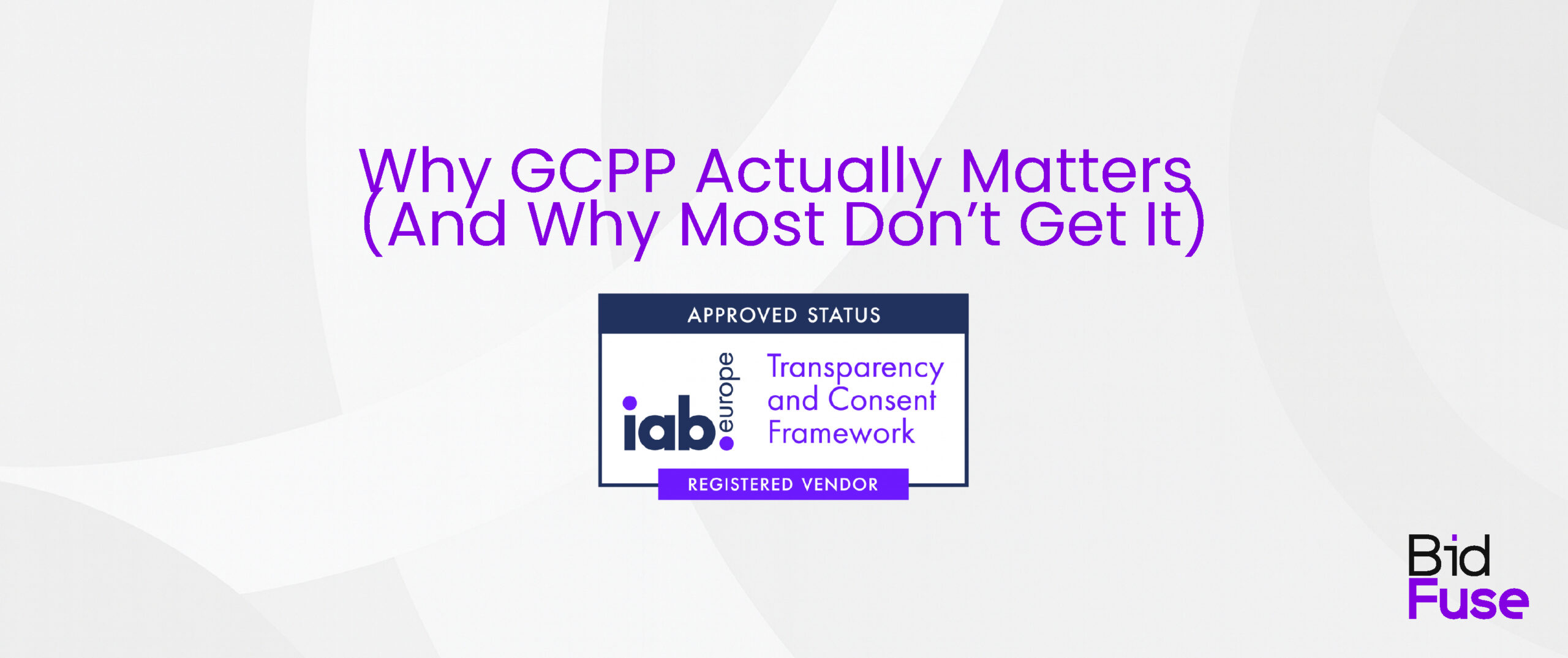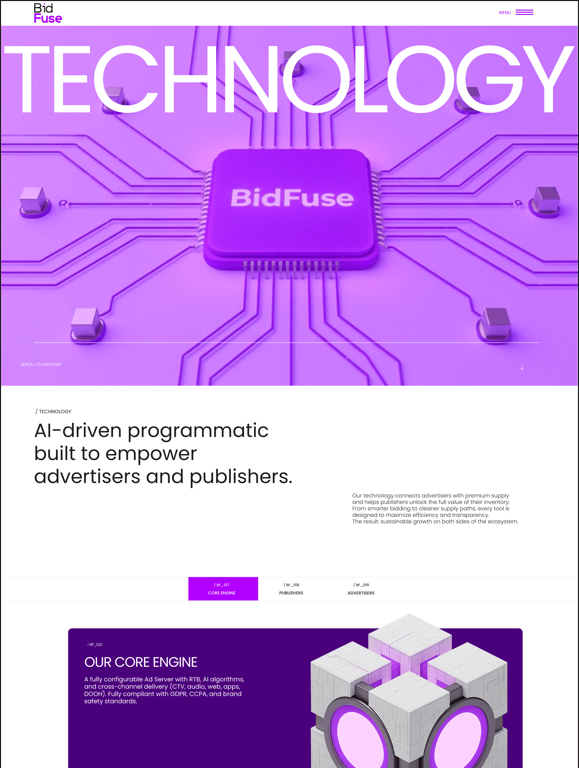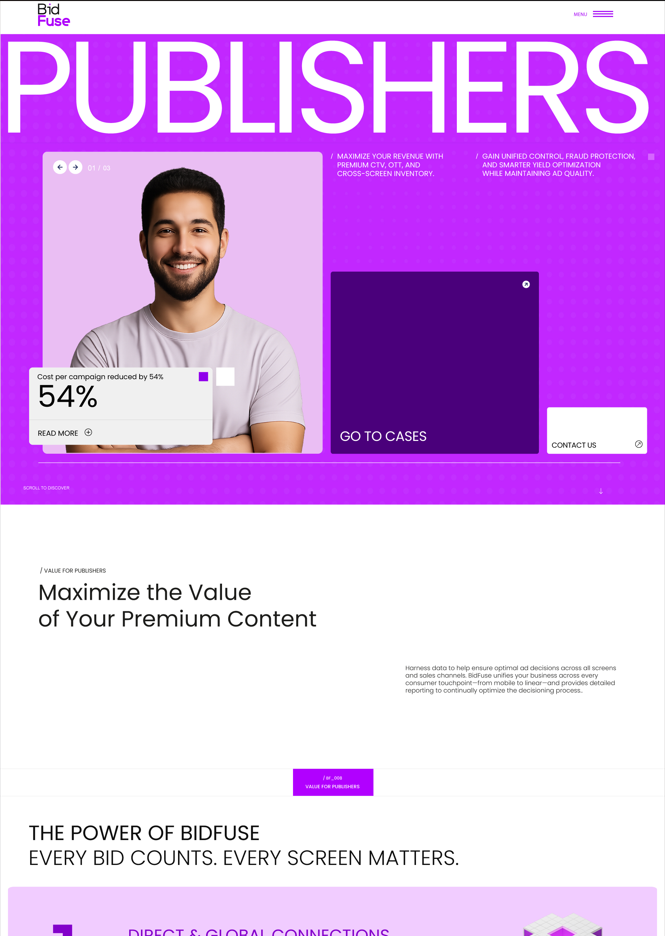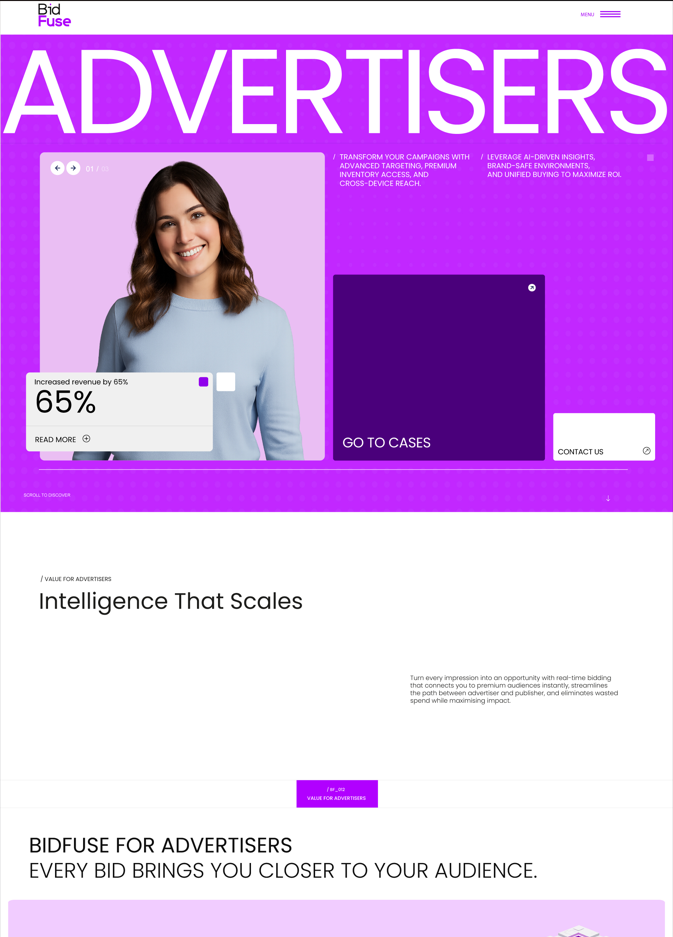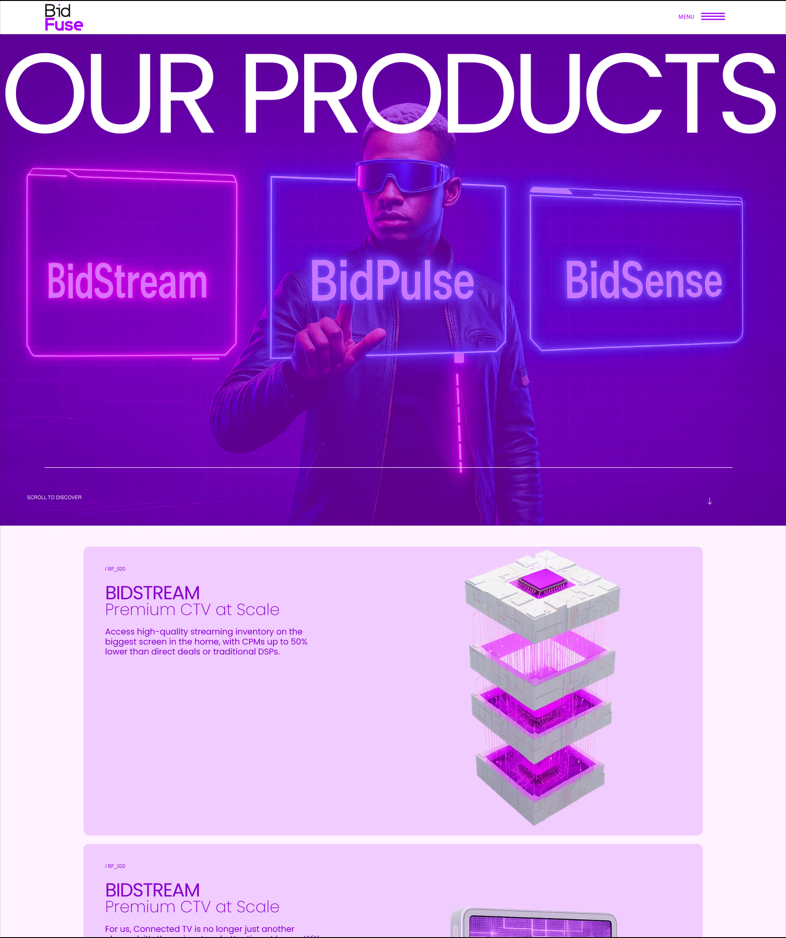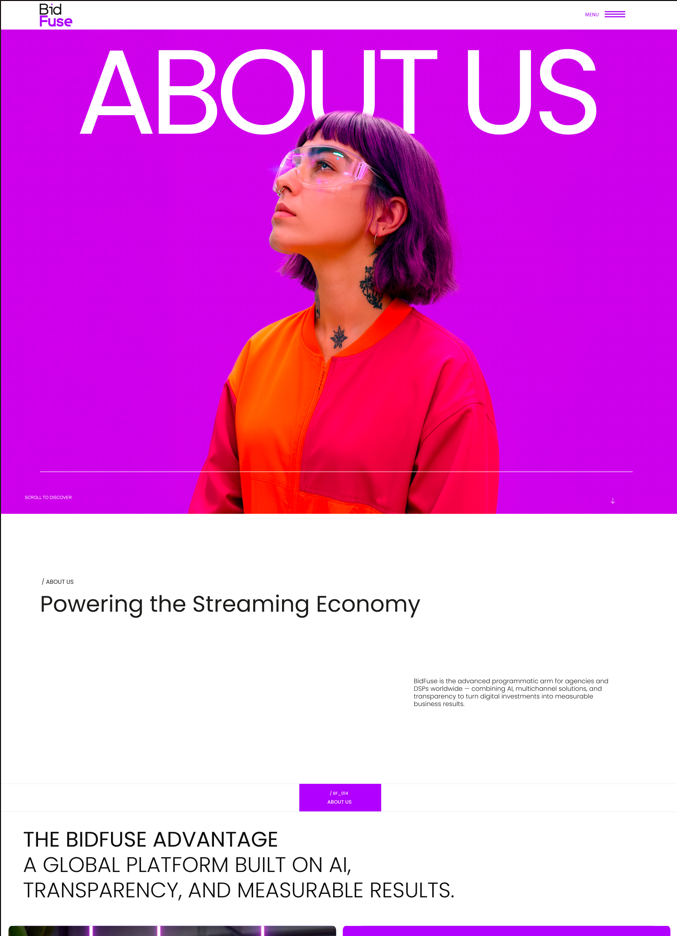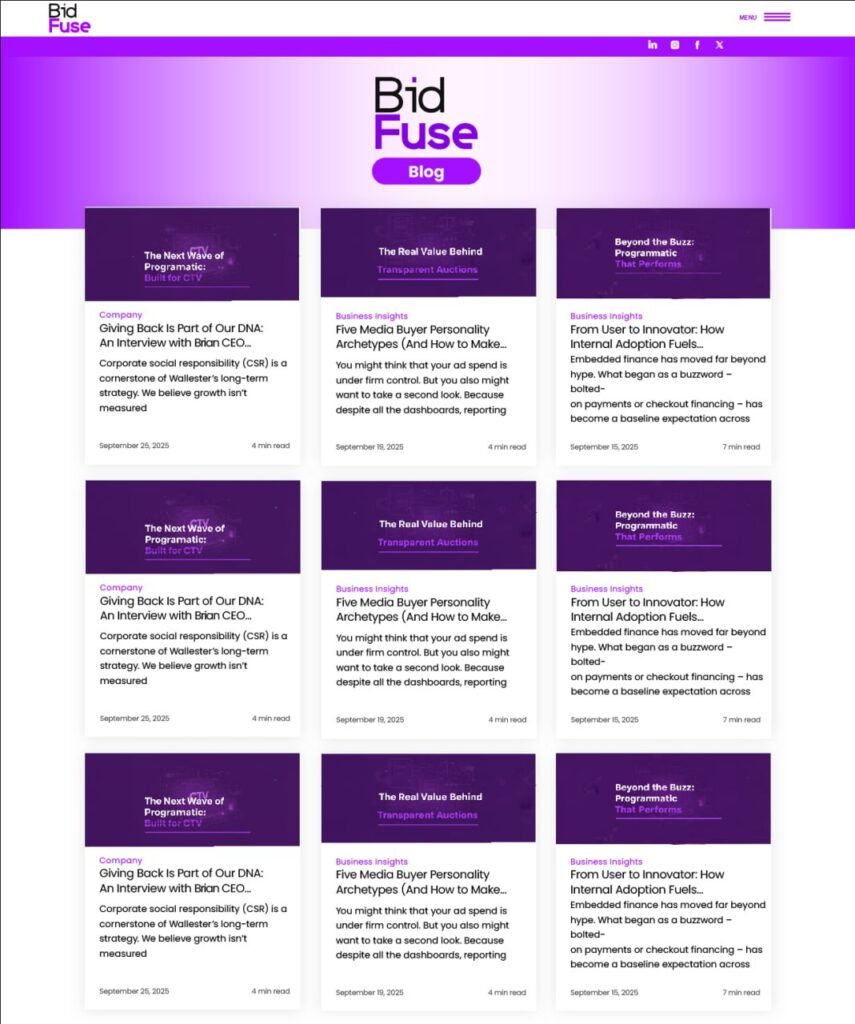A lot of people look at the Google Certified Publishing Partner badge and see it as decoration.
It isn’t.
Being GCPP isn’t about passing a course or putting a logo on your site. It means proving every year that your tech, your team, and your results actually meet Google’s standards.
For publishers and networks, that translates to real advantages:
- Faster onboarding into GAM + Open Bidding
- Priority access to demand that others wait in line for
- Ongoing optimization with direct Google support
- Less technical friction, more active revenue flowing
At BidFuse, this isn’t a marketing slogan. It’s how we work. Every publisher we onboard runs on a stack that’s validated, updated, and aligned with Google.
The difference is simple: when your partner is GCPP, your path to sustainable monetization is shorter, cleaner, and more reliable.
What GCPP certification actually requires
Google doesn’t hand out this certification based on good intentions or quarterly revenue numbers alone.
The requirements are technical, operational, and ongoing:
Infrastructure compliance. Your ad server, bidding setup, and data handling must align with Google’s technical specifications. This includes proper SDK implementation, correct API usage, and validated server-side configurations.
Annual recertification. Every year, Google audits your platform. They check performance metrics, technical implementation, support capacity, and policy adherence. If you slip, you lose the badge and the benefits that come with it.
Publisher performance standards. You’re measured on how well publishers using your stack perform: fill rates, latency, invalid traffic filtering, policy violations. Your certification reflects not just what you promise, but what you deliver at scale.
Direct support channels. GCPP partners get access to Google’s Product Specialists and Technical Account Managers. That means faster troubleshooting, earlier access to beta features, and clearer guidance when issues arise.
This isn’t a one-time checkbox. It’s a continuous validation that your infrastructure works the way Google expects premium monetization to work.
Why this matters for publishers
If you’re a publisher evaluating monetization partners, GCPP status tells you something concrete: this partner has been audited, validated, and approved by Google to integrate with their ecosystem at the highest level.
That matters because Google controls access to some of the most valuable demand in programmatic advertising. Open Bidding, for example, requires GCPP certification to activate. Without it, you’re locked out or forced to work through additional intermediaries, which means more hops, more latency, and less revenue reaching you.
When your partner is GCPP-certified, you get:
Shorter onboarding timelines. Pre-validated setups mean fewer technical delays. What might take weeks elsewhere can be live in days.
Priority demand access. Open Bidding opportunities, video monetization features, and advanced formats become accessible without waiting for approval queues or working through resellers.
Reduced technical overhead. Issues get resolved faster because your partner has direct lines to Google’s technical teams. That translates to less downtime and fewer missed revenue opportunities.
Ongoing optimization. GCPP partners receive regular updates on best practices, new features, and performance benchmarks. You benefit from those insights without needing your own dedicated Google rep.
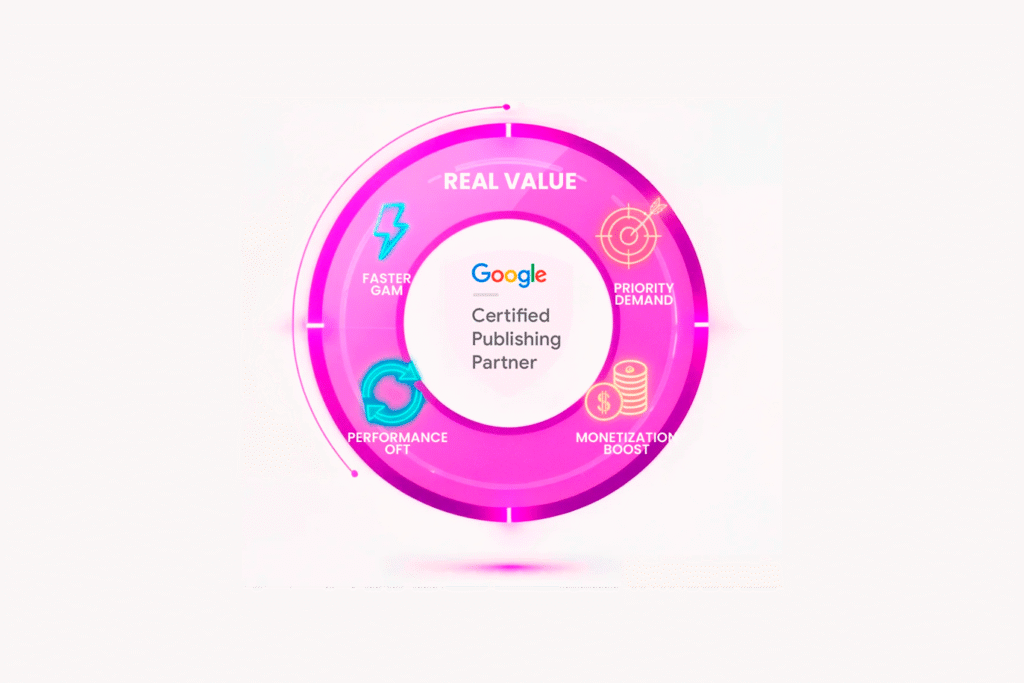
Why some partners avoid pursuing it
GCPP certification isn’t easy to obtain or maintain.
It requires infrastructure investment, dedicated technical resources, and transparent reporting. You can’t game the system. Google audits real performance data, not projections.
Some companies choose not to pursue it because:
- Their infrastructure doesn’t meet Google’s technical requirements
- They can’t maintain the ongoing performance standards
- They prefer operating through opaque supply chains where accountability is harder to trace
- They don’t want the scrutiny that comes with annual recertification
That’s fine. But it also means those partners can’t offer the same level of access, speed, or support that GCPP partners can.
How we use it at BidFuse
For us, GCPP isn’t a credential we put on the website and forget about.
It’s embedded in how we design integrations, onboard publishers, and structure our demand relationships.
When a publisher connects with BidFuse:
- Their inventory gets access to Open Bidding without additional intermediaries
- Setup follows Google’s validated technical paths, reducing latency and increasing fill
- Issues get escalated through direct support channels, not generic help queues
- Ongoing optimization happens proactively, informed by Google’s latest recommendations
We don’t treat GCPP as a competitive advantage because we’re the only ones who have it. We treat it as table stakes for anyone serious about maximizing publisher revenue in Google’s ecosystem.
The bottom line
If you’re working with a monetization partner, ask them if they’re GCPP-certified.
If they are, ask how they use it to benefit your setup specifically.
If they aren’t, ask why and what that means for your access to Open Bidding, video monetization, and priority demand.
The certification exists for a reason. It separates partners who meet Google’s technical and operational standards from those who don’t.
When your partner is GCPP, your path to sustainable monetization is shorter, cleaner, and more reliable.
And in programmatic, that difference compounds every day.

